Factoring receivables is a commercial financing option a business can use when it needs to obtain capital or a line of credit quickly. The company in need sells its most current invoices or receivables to a factoring company to get cash (in 24 hours). The debtor, or the company’s client, then remits payment directly to the factoring institution within 30-days or less. All parties involved get paid, including the financing company, which takes a percentage for its role in the deal.
Non-Recourse Factoring
The factoring company — not the original company selling the invoices – takes on the bad debt. A non-recourse financing agreement will actually absorb the loss itself. This is the primary advantage of non-recourse factoring. The factoring company takes all the risk, including the risk of non-payment from the debtor. In other words, it is the financing company — and not the company selling the invoices – that is on the hook for the bad debt or loss. The company selling the invoices is left completely unburdened by the matter.
Recourse Factoring
With recourse financing, when the debtor fails to pay its debt after numerous attempts of collection and a long waiting period (usually 90-days), the bad debt goes back to the original company. That is, the original company (the one selling the invoice) would be responsible for paying the bad debt and not the factoring institute.
Non-Recourse vs. Recourse Factoring: A Difference in Fees
Factoring without recourse is generally a percentage point or two more expensive upfront because the factoring institution is taking on all the risk. Factoring with recourse, on the other hand, can have lower up-front fees because of the risk. Yet taking on bad debt due to a non-paying debtor will most likely end up costing more in the long run. And this, in short, is the tradeoff between non-recourse and recourse factoring.
Points to Consider about the Two Financing Options
According to recent reports by the Commercial Finance Association, an association dedicated to the development of best practices in asset-based lending and factoring industries, non-recourse factoring is by far the most commonly used method making up more than 75 percent of all transactions.
Most long-established factoring companies with a sizable financial depth offer non-recourse factoring. Those new to the industry without deep financial pockets may choose to only offer factoring with recourse, and this makes practical sense. To offer the non-recourse variety, the financing institute must be able to accept and take on huge financial risk and loss.



